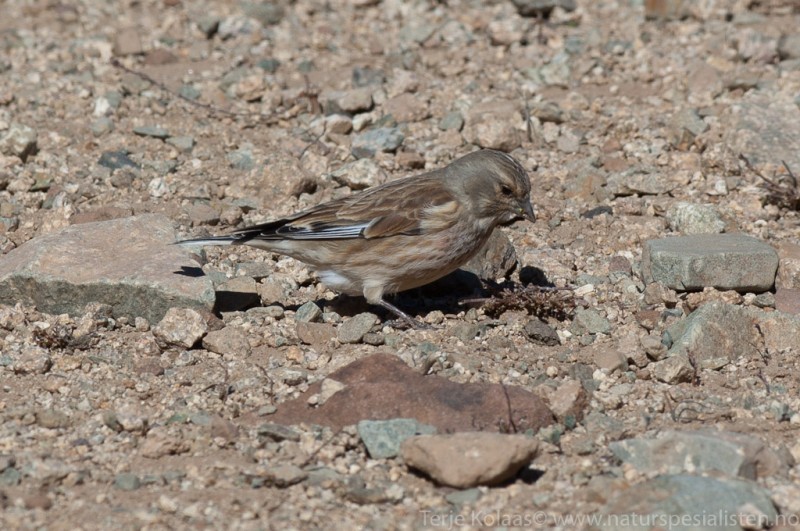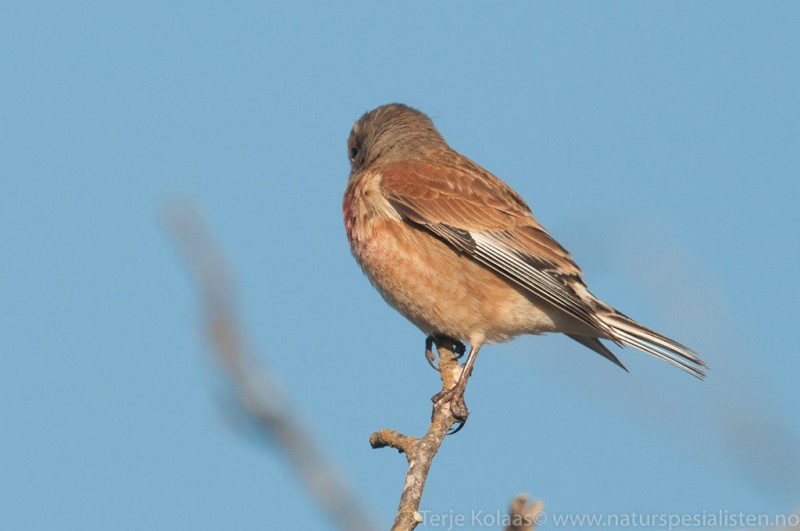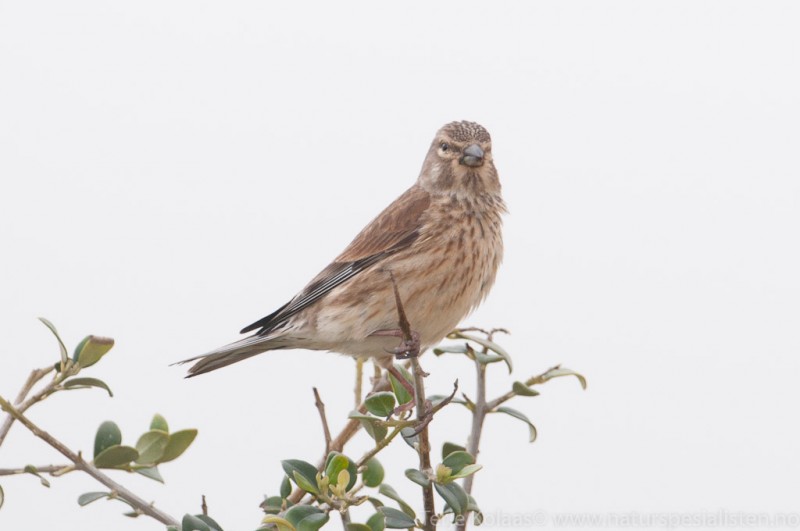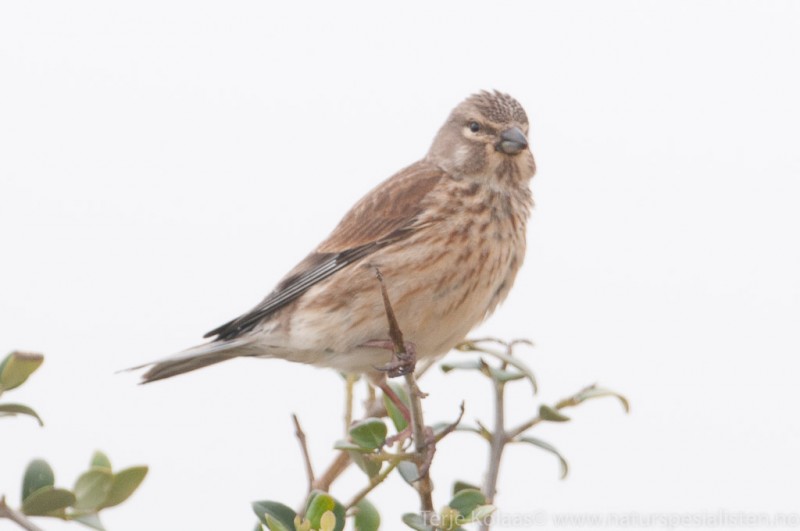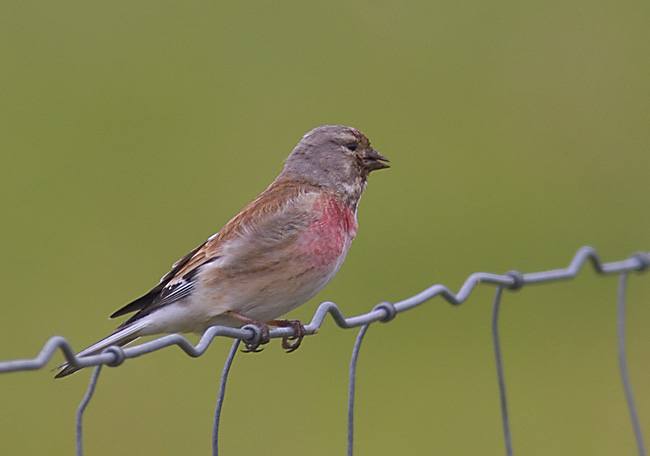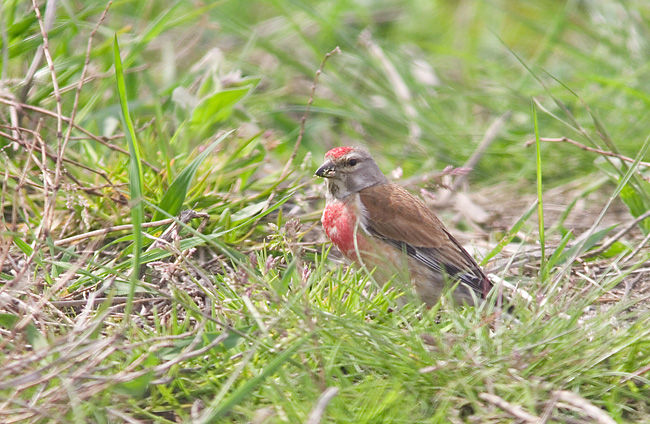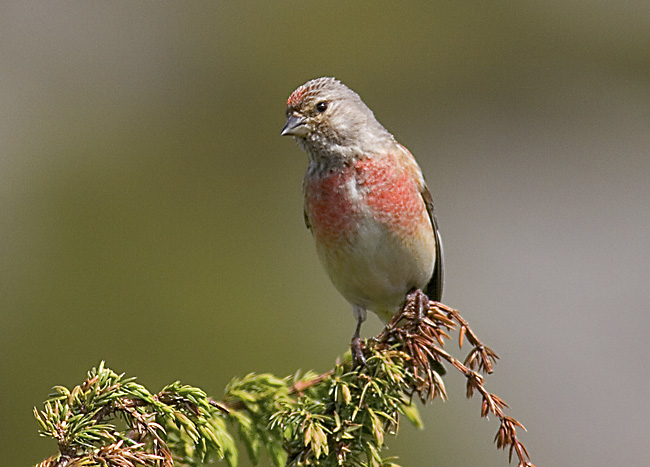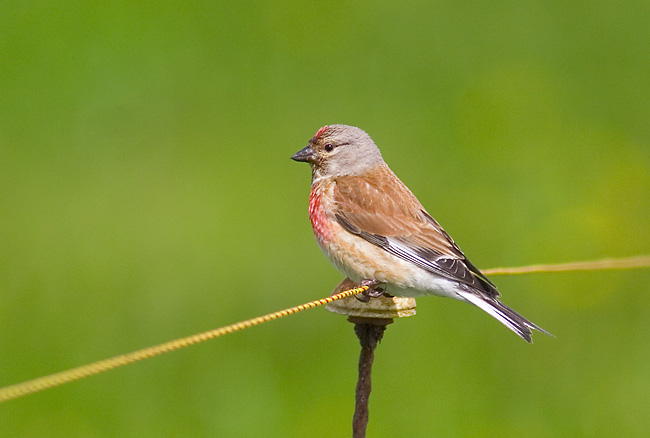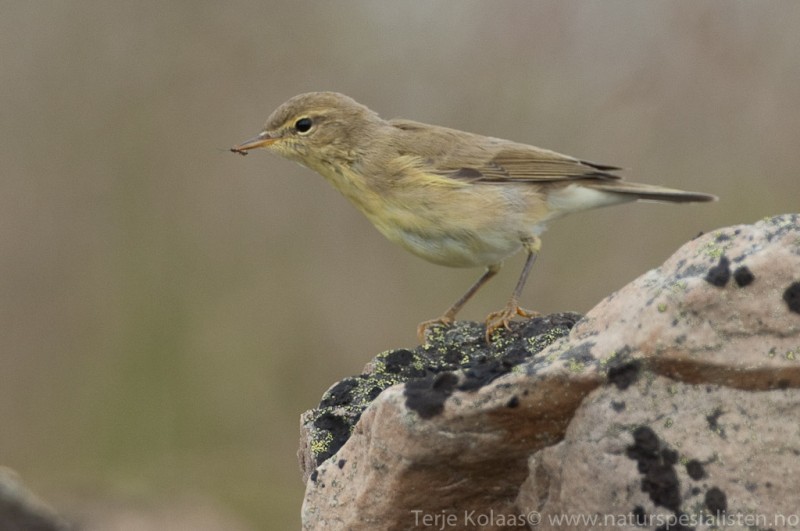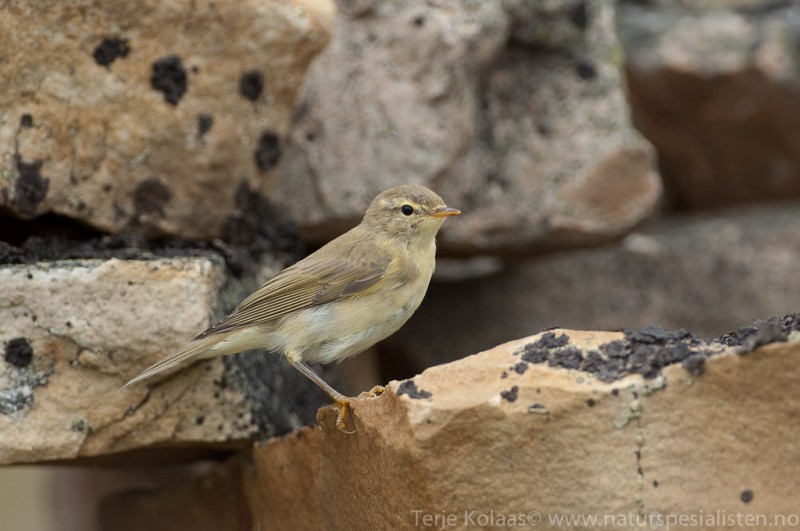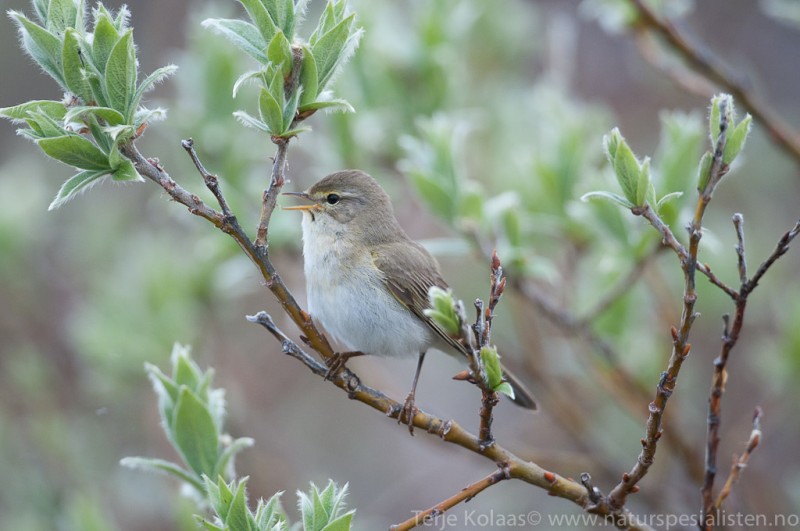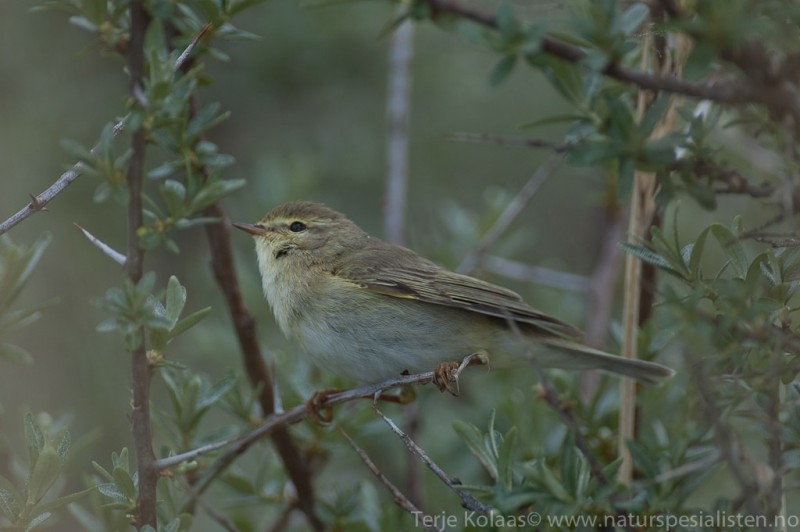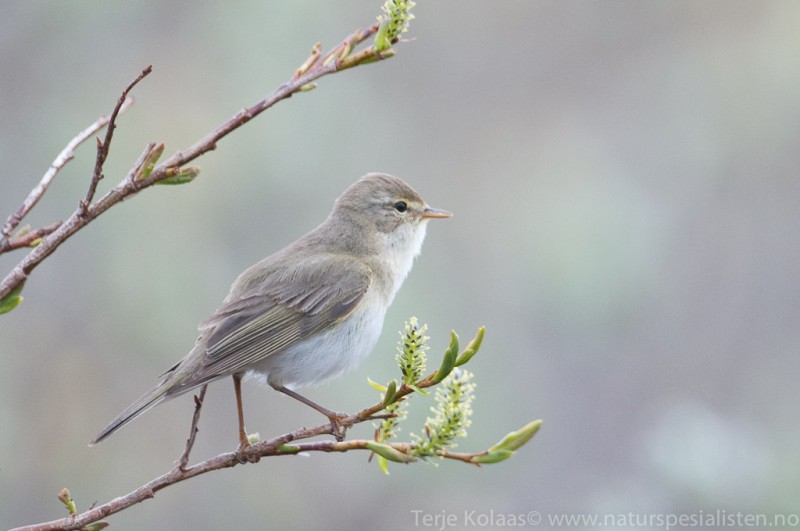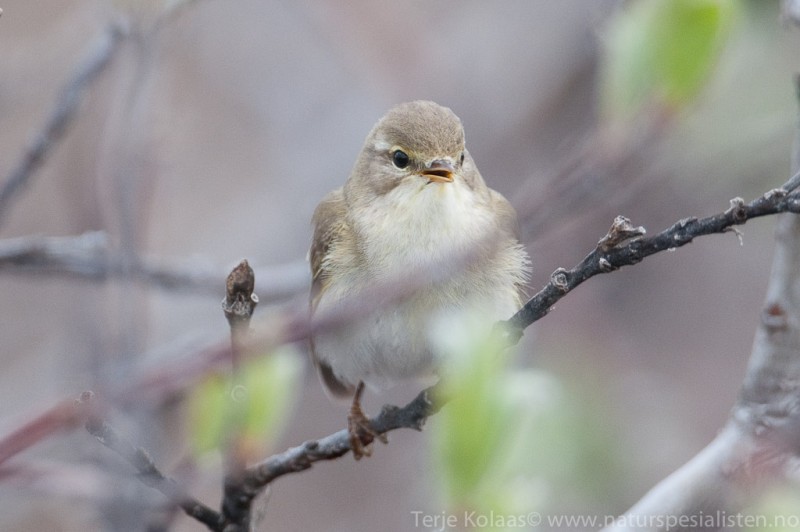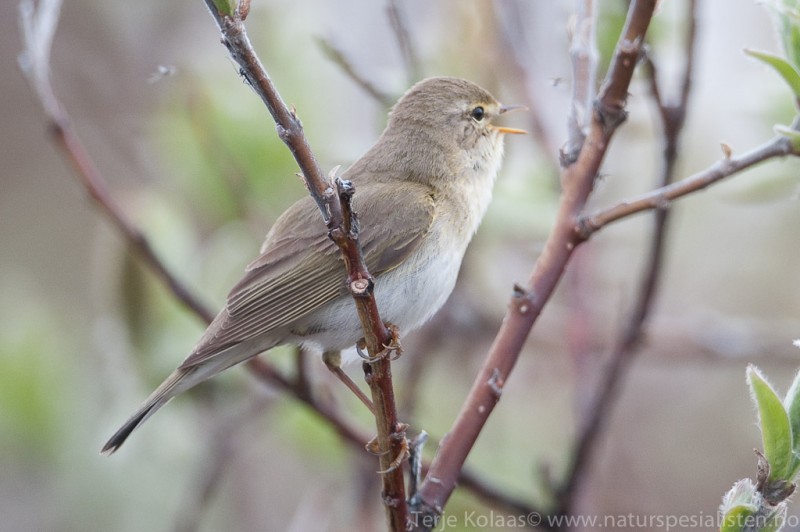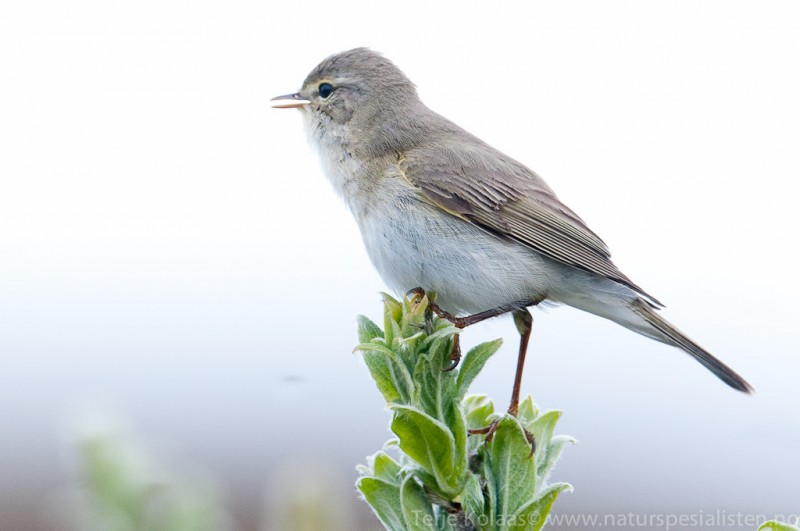Linnet (Linaria cannabina)
Willow Warbler (Phylloscopus trochilus)
In all plumages: Brown, unstreaked (or faintly streaked) back, grey bill, only faint wing-bars (or none), distinct white base to primaries and streaked throat. Both sexes with pale eye-ring and pale cheek patch. Breeding male distinct with slate grey head, cinnamon back, red chest and red forehead. Females and juveniles easily confused with Twite or Redpoll but note back and face pattern.
Sound:Flight-call a quick and "bouncing" "gig-gig" or "tchett-tchett". Most often disyllabic utterances, while Twite seems to vary more the number of syllables. Tone harder and more bouncing. Song a varied, sweet stream of contact calls, mimicry and trills with a staccato feel. Most easily recognized by the frequently interwoven, disyllabic contact calls.
Calls, song:
Distribution:
Wikipedia: map (se also Xeno-canto below)
Ecology:Birdlife ecology
Links:
Observation.org Latest observations
Image search Flickr NB! May give other species
CCOlive green upperparts, yellowish chest with gradual transition to off-white belly. Very similar to Chiff-chaff, and most field characters are subtle and often hard to see. Distinguished by (usually) pale, yellow-brown legs, dark framing to ear-coverts, stronger supercilium. Long primary projection (often 3/4ths the length of tertials) with irregularly spaced tips (visible when wing folded). Wings slightly more pointed than in Chiff-chaff, and not so fan-shaped. Juveniles often with whole underparts yellow. Frequently flicks tail, but not sideways (unlike Chiff-chaff). Generally also more calm when moving among the foliage.
Sound:By far most easily identified by it's call or song. Contact/alarm call a soft, plaintive ascending "hoo-eet". Similar to Chiff-chaff, but first part more drawn, giving it a disyllabic feel. Song: A 3-5 second, falling phrase of soft, rippling "svi-svi" sounds, starting high with some attack, and then falling in a mellow manner. The phrase lacks any conclusion, and diminishes both in strength and tempo.
Song:
Distribution:
Wikipedia: map (se also Xeno-canto below)
Ecology:Birdlife ecology
Links:
Observation.org Latest observations
Image search Flickr NB! May give other species
CC
 English
English Albanian
Albanian
 Armenian
Armenian
 Bulgarian
Bulgarian
 Catalan
Catalan
 Croatian
Croatian
 Czech
Czech
 Danish
Danish
 Dutch
Dutch
 Finnish
Finnish
 French
French
 Georgian
Georgian
 German
German
 Greek
Greek
 Hungarian
Hungarian
 Italian
Italian
 Latvian
Latvian
 Lithuanian
Lithuanian
 Macedonian
Macedonian
 Norwegian
Norwegian
 Polish
Polish
 Portuguese
Portuguese
 Romanian
Romanian
 Russian
Russian
 Sami : Lule sami
Sami : Lule sami
 Sami : North sami
Sami : North sami
 Sami : South sami
Sami : South sami
 Scientific names
Scientific names
 Serbian
Serbian
 Spanish
Spanish
 Swedish
Swedish
 Ukrainian
Ukrainian


